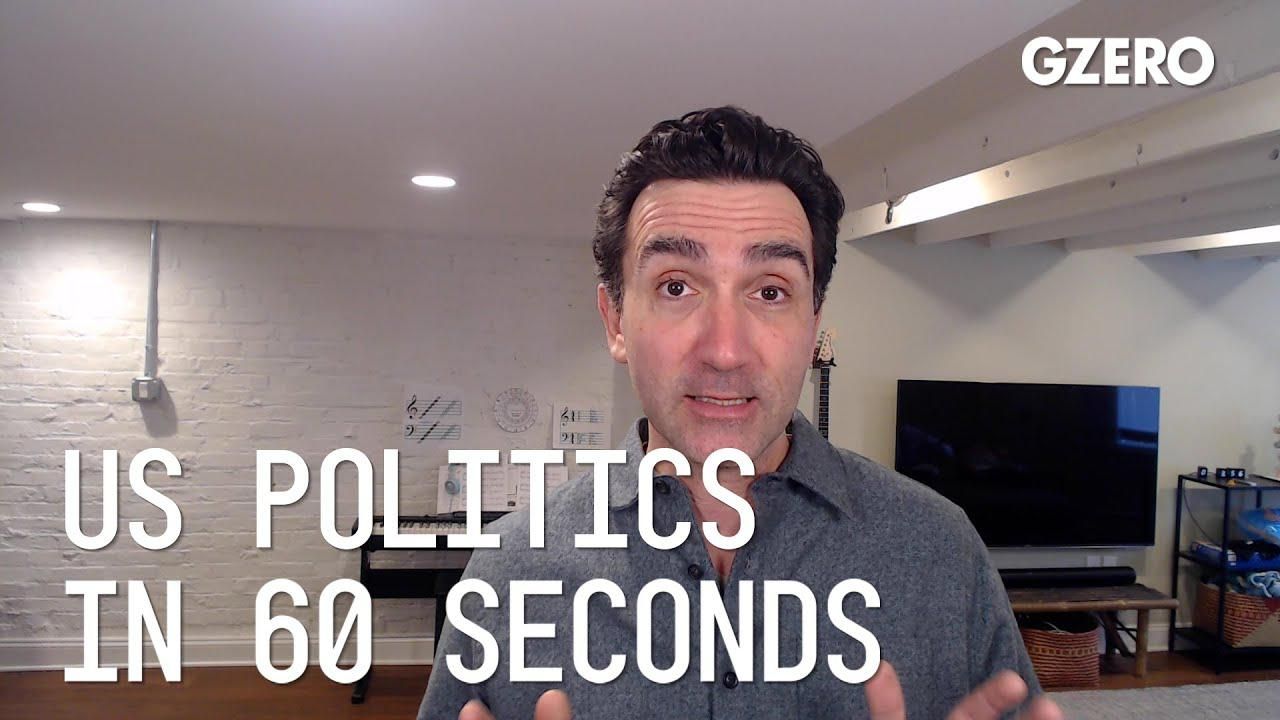US Politics In 60 Seconds
Ukraine: Biggest foreign policy test for the Biden administration

Ukraine: Biggest Foreign Policy Test for the Biden Administration | US Politics :60 | GZERO Media

Jon Lieber, head of Eurasia Group's coverage of political and policy developments in Washington, shares his perspective on Biden's strategy on the Ukraine crisis.
How has Biden's response to the Ukraine crisis been so far?
Well, Ukraine is emerging as a major foreign policy test for the Biden administration who came into office seeming to want to set the Russia issue aside so they could focus on US policy in Asia. The Biden administration wants a diplomatic response because diplomacy is probably all they have. In public opinion polling, Americans say they do not want to get involved militarily in Ukraine, even if Russian invades, but near majority of Americans say they're not following the issue closely either, which means many of them could probably be convinced one way or the other. The White House efforts to deterrence have included a clever play to foil Russia's invasion plans by releasing intelligence about misinformation President Putin was planning on releasing as a pretext for invasion.
But one thing they have not yet done are sanctions, which members of Congress are pushing for to do in advance of a Russian invasion. If Putin invades, sanctions are likely to come very fast for Russian state-owned banks, individuals involved in the invasion, and against anyone globally for trading in new Russian debt. This will cut off a number of critical financial lifelines for the Russians. It'll have significant cost for the West, however, as it could dramatically increase energy prices and potentially cut off supplies for Western European countries that rely on Russian gas.
Politically, if the Biden administration's unable to stop an invasion, it will contribute to a narrative that undermines the foreign policy credibility that Biden ran on in 2020, and will be another major drag on Biden's approval ratings, which have already suffered due to high inflation and the ongoing pandemic.
While Gaza and Ukraine dominate headlines, dozens of other conflicts—from Haiti to Myanmar to the Congo—get far less global attention. International Crisis Group’s Comfort Ero joins Ian Bremmer on GZERO World.
From civil conflicts to trade wars to the rise of new technologies, GZERO runs through the stories that have shaped this year in geopolitics.
Ukrainian intelligence services assassinated a senior Russian general on the streets of Moscow on Monday, detonating a bomb strapped to his car.
1: French President Emmanuel Macron announced plans to build France’s first aircraft carrier in decades, as Europe accelerates rearmament.